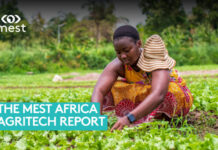Glass packaging remains a cornerstone of the beer industry, offering a timeless combination of durability, recyclability, and premium appeal. As consumer preferences shift toward sustainable, high-quality products, glass packaging has experienced renewed investment and innovation. From craft breweries seeking eco-conscious solutions to premium brands focusing on distinctive, customizable designs, glass packaging plays a critical role in defining brand identity and meeting environmental goals.
Projected to grow from $39.50 billion in 2023 to $58.59 billion by 2034, the beer glass packaging market is expanding at a CAGR of 3.65%. This growth underscores the rising demand for packaging that not only preserves quality but also aligns with the values of today’s environmentally aware and quality-seeking consumers.
Key Market Drivers
- Sustainability as a Core Consumer Value
Environmental concerns have taken center stage in consumer choices, with growing calls for sustainable packaging materials that minimize waste. Glass packaging addresses these demands with its infinite recyclability—a feature increasingly appreciated by both consumers and manufacturers. With fewer carbon emissions over repeated cycles and no degradation in quality, glass packaging offers an eco-friendly solution that aligns with long-term sustainability goals.
- Aesthetic Appeal and Brand Differentiation
The use of glass packaging allows brands to deliver a sophisticated, high-end product experience. Customizable glass bottles help companies differentiate themselves through unique designs, logos, and colors, reinforcing brand identity. The tactile and visual appeal of glass is a powerful tool, allowing companies to connect with consumers who prioritize both quality and aesthetics in their purchasing decisions.
- Craft Beer and Premiumization Trends
With the growth of craft beer and premium beverages, glass packaging has become synonymous with quality. Consumers looking for unique, high-end products are more likely to choose glass-packaged beers, which offer both an authentic experience and a premium feel. Craft brewers, in particular, have leveraged glass packaging to showcase their brands’ artisanal quality, allowing them to stand out in a competitive market.
Major Trends Shaping the Beer Glass Packaging Market
Shift Toward Lightweight Glass Packaging
In response to both environmental and logistical pressures, lightweight glass packaging has become a prominent trend. By reducing the materials used, lightweight glass technology decreases carbon emissions and reduces shipping costs—a win-win for brands and the planet. Companies like O-I Glass Inc. are already implementing lightweight initiatives, such as for wine bottles, which can be adapted to the beer market to meet the same sustainability targets.
Demand for Customizable and Premium Packaging Solutions
Today’s consumers are drawn to unique, customizable packaging that speaks to their desire for personal expression and premium quality. Beer brands are responding with innovative designs that reflect their brand identities, from bottle shapes to color schemes and textures. Notable companies, including Verallia Group and Ardagh Group, are heavily investing in high-end design solutions tailored to meet the specific preferences of their client base and end consumers, aiming to foster stronger brand loyalty.
Growth in Craft Breweries and Small-Scale Production
The craft beer sector has seen remarkable growth, sparking a demand for smaller, customizable glass packaging options that cater to niche markets. With eco-conscious consumers comprising a large segment of craft beer drinkers, glass bottles remain a natural choice due to their recyclability and reusable properties. Craft breweries leverage unique packaging options to capture consumer attention in an increasingly saturated market, differentiating their offerings and aligning with environmental values.
Environmental Concerns and Stricter Regulations
As environmental regulations surrounding plastic and metal packaging tighten, glass is emerging as an eco-friendly alternative. Unlike plastic, which can contribute to pollution, glass is chemical-free and recyclable. This makes it a compliant and attractive choice as governments impose stricter guidelines to promote recycling and reduce landfill waste. For brands prioritizing sustainable practices, glass offers a responsible, effective packaging solution.
The Future of Glass Packaging in Beer: A Sustainable, Premium Option
As the beer industry continues to evolve, glass packaging is expected to remain a staple due to its alignment with both environmental goals and consumer preferences. Innovations in glass technology, coupled with a focus on premium experiences, position glass as the packaging choice for brands aiming to cater to a discerning, eco-conscious audience. The following trends are anticipated to drive continued growth and adaptation in the beer glass packaging market.
- Enhanced Recycling Infrastructure and Closed-Loop Solutions
The growing emphasis on closed-loop recycling systems is set to enhance the sustainability of glass packaging even further. By establishing robust recycling networks, manufacturers can ensure that glass bottles are continuously recycled and returned to the supply chain, lowering production costs and reducing waste.
- Innovative Coatings and Treatments for Glass Bottles
To improve durability and prevent breakage, manufacturers are exploring new coatings and treatments for glass bottles. These coatings can make bottles more resistant to damage without compromising their recyclability. By enhancing the durability of glass bottles, companies can reduce packaging waste and meet consumer demands for more reliable packaging.
- Digital Labeling and Interactive Packaging
As digital and interactive elements become more prevalent, beer brands are beginning to incorporate smart labels and interactive designs into their glass packaging. QR codes, augmented reality (AR), and other digital tools offer new ways for brands to engage with consumers, providing information on the product’s origin, brewing process, and sustainability. This enhanced transparency allows consumers to connect with brands on a deeper level, further cementing glass as the packaging choice for premium and conscious consumers.
- Advances in Lightweight Technology and Carbon Footprint Reduction
As lightweight technology advances, manufacturers are finding ways to produce thinner yet stronger glass bottles. This not only reduces the materials needed but also contributes to a smaller carbon footprint in transportation and manufacturing. With lightweight glass packaging, companies can reduce costs while also meeting environmental targets, providing a solution that appeals to both budget-conscious and eco-minded consumers.
- Increased Collaboration Between Breweries and Packaging Manufacturers
With the ongoing demand for customized packaging solutions, collaborations between breweries and packaging manufacturers are on the rise. These partnerships allow for greater creativity and flexibility in packaging designs, ensuring that brands can offer unique and memorable products. By working closely with glass manufacturers, breweries can create tailored packaging that resonates with consumers and stands out on store shelves.
Glass Packaging as a Core Component of the Beer Industry’s Future
The role of glass packaging in the beer industry is not only integral but also evolving to meet the demands of modern consumers and environmental standards. From sustainability initiatives to innovative designs, glass packaging provides a versatile, eco-friendly solution that supports both brand identity and environmental responsibility. As the market grows, brands that embrace these trends in glass packaging will be well-positioned to capture the loyalty of discerning, environmentally conscious consumers.
For breweries and brands looking to stand out, glass packaging offers a distinct advantage—a premium look, sustainable benefits, and endless possibilities for customization. By investing in the future of glass packaging, companies can cater to evolving market demands and align with global sustainability goals, ensuring a lasting impact in a competitive market.







